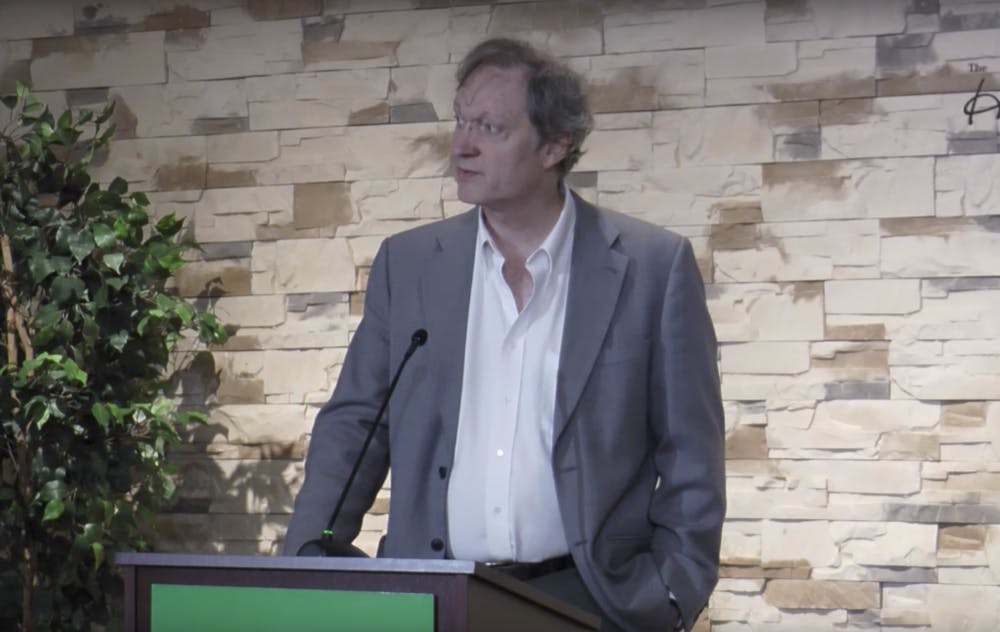
A handful of students in the Penn Political Union debated gun rights advocate John Lott on Nov. 3 on the topic of gun regulations. Lott, who is a columnist for Fox News, has criticized various media outlets for proposing stricter gun regulation laws in the wake of mass shootings.
The debate, organized by PPU, the Pi Sigma Alpha Honor Society, the Wharton Public Policy Initiative, and the Andrea Mitchell Center for the Study of Democracy, covered the frequency of mass shootings in America, the pros and cons of increasing gun regulation, and the accuracy of statistics on gun control.
A team comprised of College sophomore Noah Baron and College freshmen James Nycz and Rachel Steinig argued for increasing gun control, while Lott argued for the opposing view.
The Penn team opened its case by stating that America has a disproportionately high number of mass shootings, citing the statistic that more than 1,500 shootings have occurred since the Sandy Hook shooting in December 2012. The team also made several proposals for reforming gun control regulations, including a ban on assault rifles, gun buyback programs, and a terror watchlist that applies to gun purchases.
Lott argued that mass shootings are closely related to drug gangs and that legalizing drug use is a more viable solution. He brought in examples of other countries, such as England, where he said increased gun regulations have led to more gun crime. Much of Lott's argument involved questioning statistics that support increased regulation.
“It was definitely challenging because it’s tough to call out someone who knows the research so thoroughly,” Baron said.
The Penn team won the debate through an audience vote at the end. Lott received 11 of the nearly 40 votes.
College senior Nicholas Hagemann, who opted to abstain from the vote, said he believed the discussion on reputability of sources was just as important as the arguments being made.
“People can’t agree on facts," he said. "At the end of the debate, they are just saying ‘Your facts are wrong.’”
Members of the audience questioned the various proposals that the speakers raised. For example, some questioned whether implementing universal background checks would disproportionately target minorities.
“Just being exposed to the other side is interesting,” Engineering sophomore Connor Fenn said. He added that it was surprising to him that “good guys stopping bad guys doesn’t really happen,” he said, in reference to a study that found that concealed carry was only effective in seven of 120 cases.
The Daily Pennsylvanian is an independent, student-run newspaper. Please consider making a donation to support the coverage that shapes the University. Your generosity ensures a future of strong journalism at Penn.
Donate




